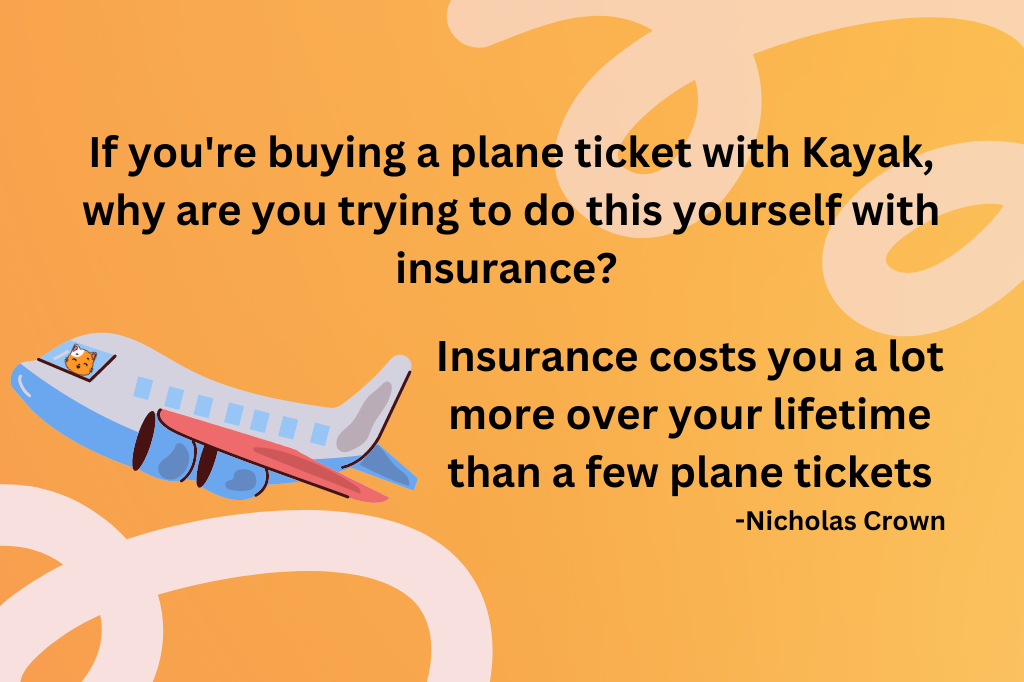What Is Umbrella Insurance?
- Umbrella insurance, a personal umbrella policy (PUP), or Excess Liability insurance extends the protection you get from auto, homeowners, condo, renters, and boat insurance policies
- It helps protect you against certain personal injury lawsuits
- Policies start at $1 million in liability coverage and usually cost only a few hundred dollars a year to protect you, your assets, and your household members*
🔒 We don't sell your information - no spam, and no calls
How do umbrella policies work?
Personal umbrella policies are sometimes referred to as excess liability insurance because they provide excess coverage on top of existing policies. They kick in after you've exhausted the limits of other personal insurance policies, like your auto, homeowners, renters, landlord, boat, or motorcycle insurance.
Personal umbrella policies also provide protection you don’t typically receive from your existing policies. Your auto and homeowners policies, for example, will exclude personal injury —e.g. if you’re charged with slander, libel, false arrest, invasion of privacy, or defamation your policy might not cover you. However, a personal umbrella policy will usually protect against personal injury claims for you and your household members. Let's consider a few scenarios:


Scenario 1: Your neighbor slips and falls in your house, sustaining a major back injury. They sue you for their $1 million in medical bills and lost wages, but your homeowner's personal liability coverage only covers $500,000. A $1 million personal umbrella policy would usually cover the remaining $500,000 in medical bills. Without it, you could be forced to pay the remaining $500,000 in costs from your assets.
Scenario 2: You own a duplex and rent out the unit you don’t live in. After a dispute with your tenant, you go onto social media and share personal details that get them fired from their job and reviewed by their state licensing board. It turns out those details you shared are inaccurate and you’re now being sued for $1.5 million in a libel lawsuit after your tenant had to get a new job, go to therapy, and rehabilitate their professional image. A $2 million umbrella policy could cover you for all of the damages that your landlord insurance policy didn’t cover.
Like most insurance, umbrella policies come with their own complex legal vocabulary. Read our guide to understand your policy before you buy.
Do I need personal umbrella insurance?
Umbrella insurance can help to protect your assets if your net worth is over $1 million and you drive a car. Most auto insurance policies only provide up to $500,000 in coverage per accident. While that upper limit is enough for many drivers, having a high net worth can make you a target for lawsuits.
To determine your liability needs, consider your assets and your risk. Umbrella insurance could be a good idea if you:
- Own a home, especially one with a swimming pool
- Have young drivers in your household
- Own rental properties
- Frequently have guests or host parties in your home
- Have valuable assets, like real estate and vehicles
- Have a high amount of expected assets, like stock options, royalties trusts, or even future wages
Who can be covered under a personal umbrella policy? - You and your spouse
- The person named as a “second insured” on the policy
- Relatives or dependent living with you
- Dependents who are temporarily away from home, such as children living in a boarding school or college dorm
- Pets you keep in your home
Umbrella insurance doesn't just cover your family in your home or your car. It can protect you even when your household members are abroad driving a borrowed or rental car.
What isn't covered by umbrella insurance?
Umbrella insurance can't protect you from everything. For example, it doesn't cover libel or slander in a business setting, damages to property you own, or intentional and/or criminal acts. For a more comprehensive review of exclusions, closely review your individual umbrella policy and talk to a licensed insurance broker.
Do I qualify for umbrella insurance?
Umbrella insurance usually requires that you have an underlying auto policy as well as coverage for any homes you live in or own. You’re not required to own a car or a home to qualify for a personal umbrella policy, however. If you have renters insurance you can still qualify for umbrella insurance. If you don’t own a car but want to protect your high net worth, you can purchase non-owners car insurance to protects yourself when you’re borrowing or renting cars.
Depending on what type of property you own or rent, you might need: - Renters insurance
- Landlord/rental property insurance
- Automobile and motor home insurance
- Recreational vehicle insurance
- Watercraft insurance
- Personal watercraft insurance
- Motorcycle insurance
Umbrella policies also require minimum liability limits for existing policies, meaning you might need to raise your existing limits.
Many companies require at least $300,000 in personal liability limits on any properties you own or rent out, and the most common required bodily injury and property damage limits are $250,000/$500,000/$100,000 on each vehicle. ** Certain states and companies, however, offer different requirements that may lower or increase the amount of liability you need.
How do I buy umbrella insurance?
Umbrella insurance might be available through your current home or auto insurance carrier, but you can also purchase it through standalone umbrella insurance companies, such as RLI.
If you live in CA, FL, NY, TX, or WA, try Coverage Cat for free online umbrella insurance quotes . Our insurance optimization process considers whether umbrella insurance makes sense for you, without any phone calls or spam. If you don't live in those states, reach out to your insurance company or a local insurance broker for more options.
Can I buy umbrella insurance online?
Most insurance companies won’t give you an online quote for umbrella insurance. They might ask you to fill out an online form, but most will end up connecting you with a sales call. Coverage Cat wants to make buying umbrella insurance easier, and we offer online quotes without any calls and with no spam, ever. Most major carriers like Progressive, Allstate, or Geico require that you buy an auto policy before they sell you a personal umbrella policy. Buying a standalone umbrella policy – one that just covers your personal liability, and lets you buy your own car, home, or boat insurance - can be a great alternative if you want to keep your current insurance company or shop around whenever you need to find the best price.
Reviewed by
Max Cho
, Licensed Insurance Broker NPN 20377411






